This time last year, in the days preceding the annual promotion of illness models that is ‘World Mental Health Day,’ I remember gloomy conversations with allies on social media about the inevitable onslaught of biomedical messages that was about to be launched upon us.
We had a sense of defeat before it even began. It felt as if the best we could do was to tweet our responses challenging the worst of it and hold each other up a bit while we waited for it to pass.
The run-up to this year’s World Mental Health Day (today, October 10th) has been a particularly difficult time. As many of you know, our ally and friend, MIA blogger and ‘Drop the disorder!‘ group member member Matt Stevenson ended his life a few weeks ago on September 21st. Despite Matt’s well-developed critical and intellectual understanding about psychiatric diagnoses, the ‘illness’ model had been deeply absorbed in his younger years. Ultimately, for all his intelligence and courage, he found it impossible to escape from his identification with the labels of ‘schizophrenia’ and ‘Borderline personality disorder’ and the frightening, hopeless messages that accompanied these non-valid but intensely powerful constructs.
Matt’s death left me with zero capacity to tolerate or ignore the toxic messages that contributed directly to his death, but it also left me more determined than ever to challenge these labels that penetrate so deeply and so dangerously into people’s sense of identity.
A few weeks ago Jacqui Dillon’s Beck Road Alliance “Time to Tell” campaign succeeded in completely disrupting the hashtag of an arts event that featured an alleged abuser. The event itself went ahead, but everyone following it on social media would have been hit between the eyes by a barrage of poignant tweets exposing the reality of abuse and the ways we fail to hold perpetrators to account.
For me this felt powerful. It felt proactive. There was a sense of solidarity with people coming together on social media. Their collective voice translated into a loud cry of protest as the event hashtag was swamped with ‘Beck Road Alliance’ tweets.
World Mental Health Day is not hosting an alleged abuser but it does give a prominent platform to a narrative that, for many, is abusive, deceitful and dangerous. It is a forum for the misinformation that we are all too familiar with in its uncritical promotion of the illness narrative and its complete failure to recognise the damage it causes.
Last week I approached others on the admin team of ‘Drop the Disorder!’ with the idea of collecting a range of quotes challenging and counteracting the disease model messages. The idea was to join with allies and infiltrate the World Mental Health Day hashtags with a range of different voices and messages — including voices that are too often marginalised and silenced.
‘Drop the Disorder!’ Facebook group is now almost 6.5 thousand members strong, and many of them are active participants who are more than happy to share views and information on social media. In a related campaign, people from all over the country are attending the ‘A Disorder for Everyone!’ events with Lucy Johnstone and others exploring the problems of ‘diagnosis’ through discussion, workshops, poetry and personal testimony. Many are also involved with MIA editor James’s Moore’s ‘Let’s talk withdrawal’ Facebook group which provides a space to talk openly about the effects of psychotropic drugs.
In addition to this, ‘Mad in the UK’ is due to launch in December of this year at the Manchester ‘A Disorder for Everyone’ event. Its corresponding Twitter page is up and running and has already attracted over 800 followers. There is undoubtedly an appetite for change and it seems to be shared by many, many people.
On a global front, The United Nations Statement earlier this year by Dainius Puras, Special Rapporteur, on “The right of everyone to the enjoyment of the highest attainable standard of physical and mental health” is an extraordinary powerful boost to positive changes across the world. Needless to say, we will be circulating extracts like this on October 10th:
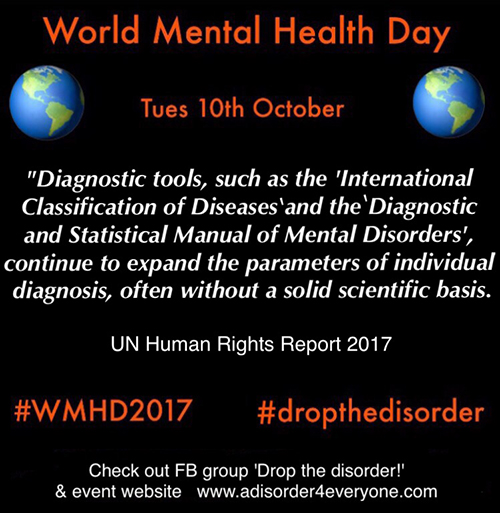
We have also collated quotes from a variety of other voices: survivors, professionals, activists, academics, researchers, and people who identity as some or all of those. Feel free to use them in your own social media campaigns.
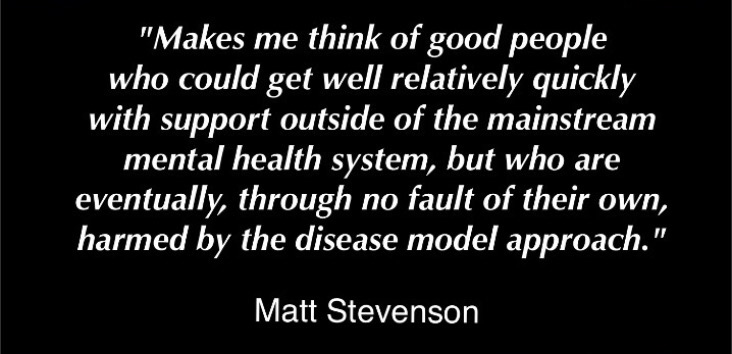
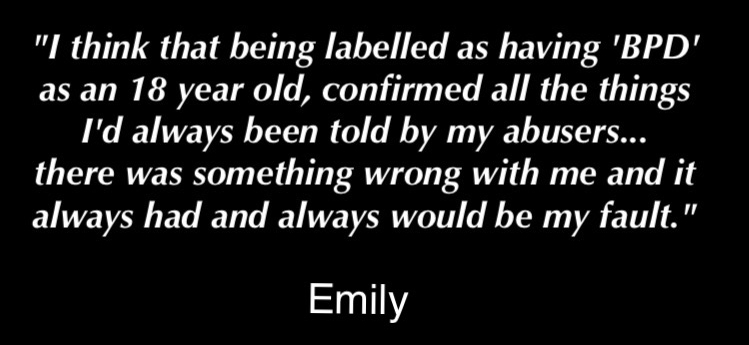
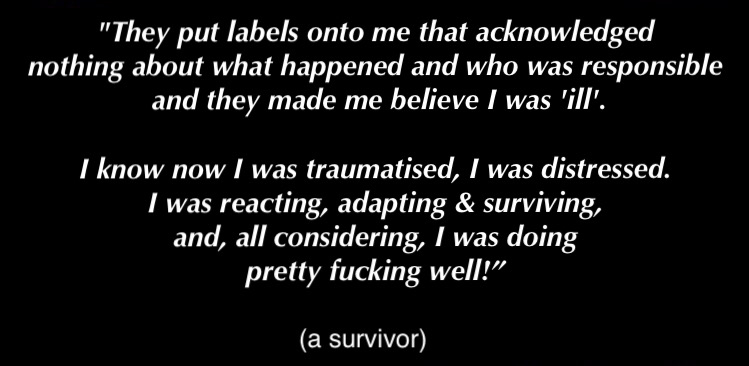
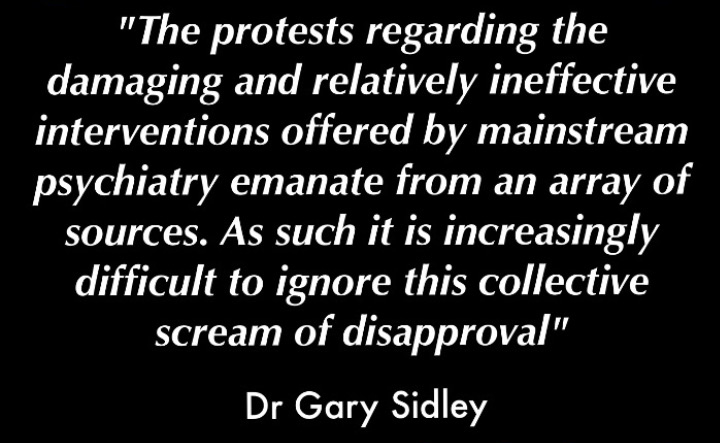
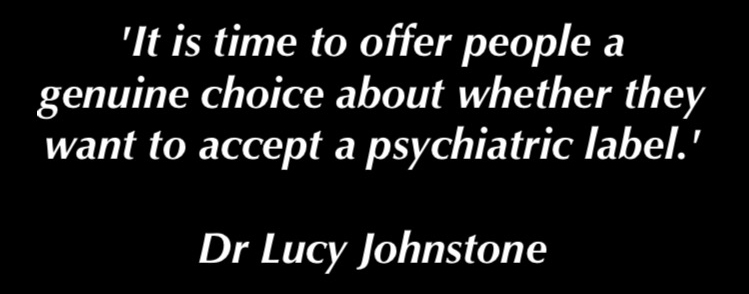
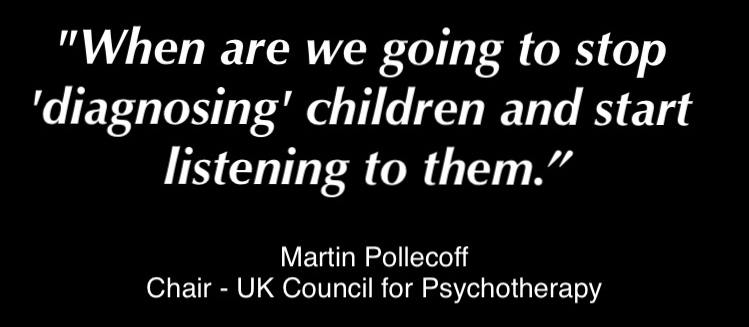
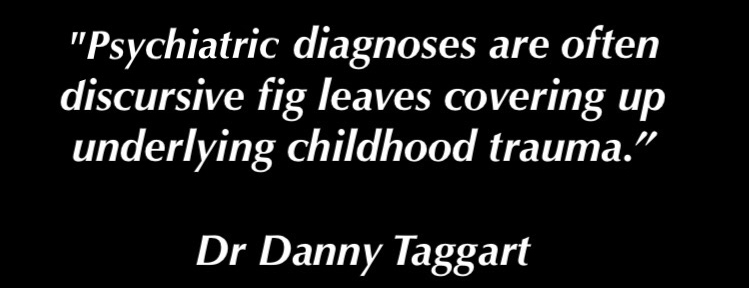
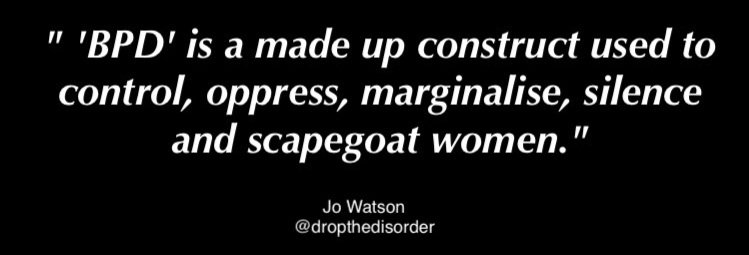
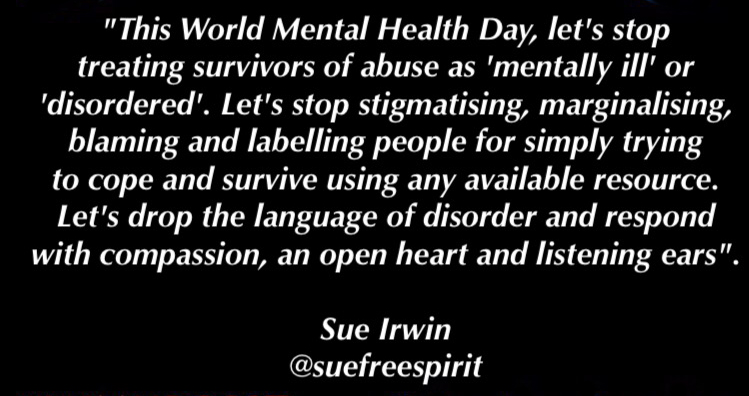
It’s impossible to tell what impact this strategy will have but it feels positive. The hashtags #WMHD2017 and #worldmentalhealth day have already been bombarded with alternative messages, and memes of quotes challenging traditional views have been spread far and wide on Twitter, Facebook and LinkedIn.
I am realistic enough to know that this relatively small protest will struggle to find a place within the dominant messages, however if we can at least have a presence and visibility, if we can at least offer an alternative view, this, in and of itself, could be life-changing for individuals with no current access to the bigger truths about psychiatric theory and practice.
So let’s infiltrate and disrupt the hashtags #WMHD2017 #worldmentalhealthday
and share messages of hope, healing, validation and solidarity! PLEASE JOIN US!

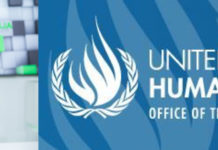













Right now I’m sort of in hiding. Not sure I will ever feel safe coming out as a survivor unless I move to Latin America. I have given up on talking anyone out of the disease model because they get all their info off television and are too dumb/lazy to even read that damning article in the APA journal by Dr. Pies. Plus Mom likes being a “med head” and having her thoughts and feelings permanently numbed.
Report comment
I moved to Mexico in 2003. You should definitely move here! Much better for the body and soul. Even with the earthquakes. Please contact me to learn more and just chat. donkarp.com
Report comment
Earning even $9,000 a year–roughly my disability check–I can live quite comfortably as a digital nomad in many countries. Might be a good idea. I speak a little Spanish already and am learning more on Duolingo.
Report comment
JO,
I would like to Drop the Disorder.
My last Hospitalization was in Galway Ireland in April of 1984 following a reaction to a first time Depot Injection given at twice the introductory dose. I stayed in hospital for less than 48 hours.
My symptoms and outcome could only have been described as Akathisia, though my Psychiatrist and University Researcher diagnosed a Pre Psychotic Episode.
http://ps.psychiatryonline.org/doi/abs/10.1176/ps.49.10.1361-b
https://www.nuigalway.ie/our-research/partners/
€9.6m
I Recovered as a Result of Stopping Medical Treatment.
Report comment
What disorder?
I believe I’ve covered this topic somewhere previously. Oh, yeah.
https://franktblankenship.wordpress.com/2016/10/05/imaginary-disease-week/
Okay, so the subject of this article is Imaginary Disease Awareness Day. I’d say Imaginary Disease Awareness Day certainly must bear a relationship to Imaginary Disease Awareness Week, wouldn’t you?
Report comment
Yes, actually mental could mean imaginary since it exists solely in the minds of psychiatrists, Big Pharma copywriters, NAMI members, and other ignorant sheeple everywhere. (Odd since most psychiatrists have no imaginations.)
Imaginary illness is real! Spread the word Tinkerbell! 🙂
Report comment
Well, World Mental Health Day, for NAMI, is Mental Illness Awareness Day. As “mental illness” is the obverse of “mental health”, I think the wording is still appropriate. Should “mental illness” be a myth (re: Thomas Szasz), what does that make “mental health”?
Resilience is such an epiphany. It’s a wonder more people don’t circumnavigate the trauma of treatment. (Or is it the treatment of trauma?) In some quarters, the answer to that question becomes rather nebulous.
Report comment
Here’s what the acronym NAMI really stands for: National Alliance for Manufacturing Illnesses.
Report comment
The Non Illness Approach to “Emotional” Distress would seem to be the only Approach that works.
Report comment
“Spread the word Tinkerbell.” Thanks for that, I needed a good laugh!
I have a suggestion for next year, change it to:
“No it’s not your imagination, the world sucks sometimes Day”
And I suggest forums with names such as,
“Yes Virginia, there are no real full time jobs that allow you to pay your bills, put a roof over your head and put food on the table. Time to stop blaming yourself”
Report comment
All Fools Day (April the 1st) is taken, so I guess this makes for 2 All Fools Days, it’s just the 2nd is officially called “World Mental Health Day”. The world might suck sometimes, however, I wouldn’t recommend it’s doing so. Folly is contagious apparently, otherwise, you’d think they’d have gotten around to the creation of an All Sages Day for us to celebrate. As is, All Sages Day must be like the Unbirthdays you find in Lewis Carroll. If we’ve got these two days dedicated to folly, alright then, that leaves the rest of year for wisdom, provided, of course, that these 2 All Fools Days prove to be learning experiences.
Report comment
Hurrah, Jo–for initiating this!
Report comment
Irish-led study finds link between blood vessels and schizophrenia:-
https://www.irishtimes.com/news/health/irish-led-study-finds-link-between-blood-vessels-and-schizophrenia-1.3250575?mode=amp
“..schizophrenia – a debilitating condition that affects around one per cent of people in Ireland..”
I’ve got 30 years + of Proven Non Debility as a result of NOT taking my medication.
Report comment
They also found schizophrenia leads to a flattened affect, diminished cognitive abilities, morbid obesity, and early mortality. Oh, wait! Those are just some minor side effects from those safe treatments we force/trick them to take. Tsk tsk!
Report comment
Every little bit counts. Slay the Dragon of Psychiatry.
Report comment
“We have also collated quotes from a variety of other voices: survivors, professionals, activists, academics, researchers, and people who identity as some or all of those.”
Sigh…still no voice for those of us who are in the trenches 24/7 with our loved ones and who refuse to abdicate the key place we have for the healing of their traumatic past with love and empathy while treating them with dignity and the respect they deserve as our equals…
Report comment
Nice work Mylady,
why the heck am we not informed of these days in advance?
I will immediately try to join your group.
And copy this valuable page link to my good book.
Thanks and keep up the good work.
Report comment
I would but I’m not on social media.
I’m very active and when I get home I read or listen to alternative news sites and this website also. This is actually the only site I’ve commented the whole time I’ve used internet.
Report comment
Good to see people are thinking this way. And I like Frank’s “Imaginary Disease Awareness Day.”
What I do have some concern about is that when you “protest” something you are to a large degree conferring legitimacy on that which you are protesting. Rather than “protesting” psychiatry we should be working to expose it and take its power away, in which case there would be nothing to protest, as people could then just say “no thank you.”
Report comment
I don’t think protest confers legitimacy on what is being protested. I do think protest can become so “normal” that it is, on top of being ineffective, regularly ignored. This is why a large degree of creativity is involved in the organizing of some such events. Part of what protest itself is about is information, that is, educating the public, and in that sense, it is about exposing the fraud, and eliminating power disparities. Guerrilla theater “mock trials” and so forth have been very effective protest tactics. I think although the psychiatric orthodoxy would try to ignore such an event, the Foucault Tribunal, for example, functioned as a kind of protest against the powers, in the case of psychiatry, that be, and impressively so. Protest itself functions as a way of saying no en masse anyway, and I can’t knock saying no en masse in favor of doing so individually when it comes to potential impact. A boycott, after all, is a form of protest.
Report comment
There is some hope.
NAMI and company is about to invade out work establishment to spread the lies about how “we” can all prevent suicide and promote “mental health”. Corporate is promoting this, all the while, forgetting that the wage slaves that work for them are not going to spend a minute more at work than they are required to. But even more inspiring is the conversation my immediate supervisor started by saying, “Instead of looking at these people and labeling them, maybe we need to go up to them and say ‘I’m sorry you’re going through this and life really sucks sometimes. Let’s talk about it.” Human kindness as a “treatment” strategy? How radical! I love her train of thought. It restored a small piece of my hope for humanity!
Thinking a lot these recent day about those who have been bullied by the “mental health” system and broken. Their hand forced to end the suffering they never deserved. Suffering compounded by the “helping” profession. But, if we begin to think of every other person as a fellow traveler, we open the door to a kinder more connected world. Stop the “othering” whenever you feel you can. It will make a difference.
Report comment
Too bad more family members at NAMi don’t have that mindset. Many don’t care about their “loved” ones’ pain at all. Some are very emotionally abusive. I guess not wanting them to commit suicide is good, but having junior sick and miserable seems fine. Why not put him into a permanent coma if “not legally dead” is all you care about?
The friend who introduced me to NAMI left in sorrow after they let her family members die. I’ll bet she isn’t the only one.
Report comment
Despite Matt’s well-developed critical and intellectual understanding about psychiatric diagnoses, the ‘illness’ model had been deeply absorbed in his younger years. Ultimately, for all his intelligence and courage, he found it impossible to escape from his identification with the labels of ‘schizophrenia’ and ‘Borderline personality disorder’ and the frightening, hopeless messages that accompanied these non-valid but intensely powerful constructs.
This is accurate from what I can see, and I wonder if others are drawing the same conclusions: Why are we still constantly “rethinking” a pernicious practice which has been proven to be based on absurdities, yet maintains such a hold on many of its victims that, even when they know they’re being lied to, the power of that lie, backed up by guns, seems so formidable that death appears to be the only option?
Instead of “rethinking” this shit over and over why aren’t we making it a collective goal to purge all psychiatric/”mental health” ideology not only from our minds but from our souls (or whatever word you choose)?
Just as indigenous people refer to “Thanksgiving” as the Day of Mourning, we should rename this World Anti-Psychiatry Day.
Report comment